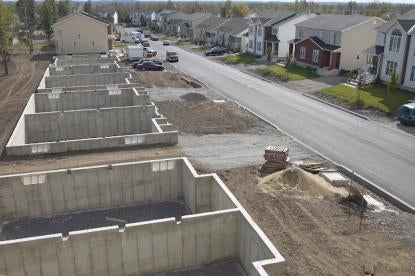Earlier this month, a package of bills was signed into law that would phase out the capture of tax increment revenues generated by library millages by downtown development authorities, tax increment finance authorities, local development finance authorities, and corridor improvement authorities. These bills took immediate effect on January 9, 2017, and must be considered in evaluating tax increment capture for these entities going forward. The law excludes all new millages for public library purposes approved by the voters after December 31, 2016, from the definition of tax increment revenues, thus automatically excluding them from capture. Millages (voted and nonvoted) levied before January 1, 2017, may also be exempted if the authority no longer has outstanding obligations that need to be paid or if the authority amends the boundaries of its district or amends its tax increment finance plan to extend the plan’s duration. The legislation, however, contains problematic language with respect to the amendment of plans to extend their duration that may make this provision ineffective.
Are all new voter-approved library millages exempt from capture?
Yes, all millages approved by the voters after December 31, 2016, are removed from the definition of tax increment revenues and cannot be captured as long as the millage is a separate millage for public library purposes. This provision applies to all libraries, not just district libraries, but would not apply to a library if its funding comes from a general millage levy of a municipality.
Are existing millages automatically exempt from capture?
Existing millages (voted and nonvoted) are only automatically exempt from capture as of the effective date of the legislation if all outstanding obligations of the tax increment authority are satisfied. “Obligations” under the statutes is a broadly defined term. An obligation is any written promise to pay or a requirement to pay imposed by law. Written promises include bonds, notes, contracts, agreements, and leases. Obligations may include chargebacks owed to counties for delinquent property taxes and gain sharing agreements. Each authority will need to analyze its financial obligations carefully in determining whether it has obligations in place that will prevent a library millage from becoming exempt.
Can an authority incur new obligations to prevent a library millage from being exempt?
While there is no definitive guidance on this question, we believe a court would likely look at the incurring of new obligations as an improper effort to avoid the intent of the new legislation. Therefore, an authority should carefully analyze its obligations in place as of January 9, 2017, and keep track of when these obligations are paid in full.
What happens if an authority’s district is amended?
Amendment of an authority’s district will result in a library being able to exempt its millage from capture. A library has until 60 days after the public hearing on the alteration of the boundaries to adopt a resolution to that effect and file it with the clerk of the community that created the tax increment authority. With respect to certain city libraries, however, the library’s action must have the concurrence of the chief executive officer of the city before it becomes effective.
What happens if a tax increment financing plan is amended to extend the duration of the plan?
The new legislation attempts to give libraries the ability to exempt their millages in this situation also; however, the statute requires that they adopt a resolution and file it with the clerk of the municipality that created the authority within 60 days of the public hearing that is required for the creation of the authority or the alteration of its district. This is a practical impossibility for existing tax increment financing plans. Therefore, if courts require literal compliance with this requirement, libraries will not be able to exempt their millage in this situation. We would expect that this problem may be addressed with future legislation and an authority relying on the literal reading of this language may need to defend its position in court. As with the extension of a district boundary, certain city libraries must have the concurrence of the chief executive officer of the city before action to exempt a millage due to a plan amendment becomes effective.
Can a library agree to allow its millage to continue to be captured?
Yes, the legislation gives libraries the power to enter into written agreements with the authority to allow or part of its millage to be captured. Thus, there is opportunity to negotiate with a library to continue some or all of the capture for projects the library may wish to support.
Are library millages exempted from capture by brownfield redevelopment authorities?
No, the bill that would have included brownfields in this package of bills did not pass the legislature and, therefore, brownfields will continue to capture library taxes as they have in the past.




 i
i

